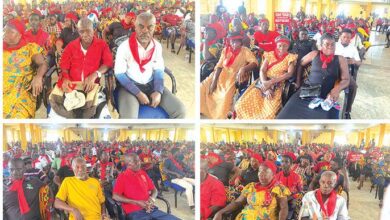MahamaCares Tour Uncovers ‘Crisis’ In Major Hospitals
…Broken Equipment, Specialists Shortage and Failing Infrastructure Exposed Nationwide
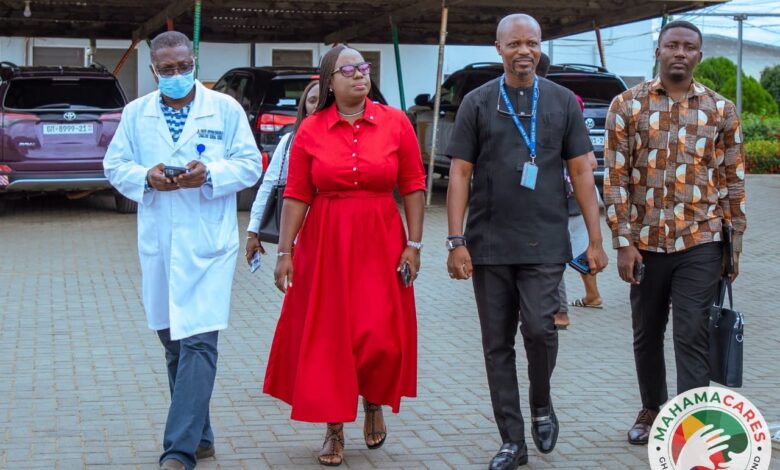
The ongoing nationwide hospital assessment tour by the Ghana Medical Trust Fund, popularly known as MahamaCares, has revealed alarming deficiencies in critical healthcare infrastructure across major hospitals in Ghana.
The initiative, which aims to strengthen the country’s fight against non-communicable diseases (NCDs), has so far exposed severe shortfalls ranging from non-functional diagnostic equipment to inadequate specialist care and dilapidated infrastructure.
The needs assessment tour, led by the Fund’s Administrator, Madam Oboubia Darko-Opoku, began at the Korle Bu Teaching Hospital and has since covered key facilities including the Greater Accra Regional Hospital (Ridge), Komfo Anokye Teaching Hospital (KATH), Kumasi South Regional Hospital, Effia-Nkwanta Regional Hospital, and the Eastern Regional Hospital in Koforidua.
Broken Equipment and Missing Tools
At nearly every facility visited, the team discovered a common trend: critical diagnostic tools such as CT scanners, MRI machines, mammography units, and dialysis equipment were either outdated, broken down, or entirely absent.
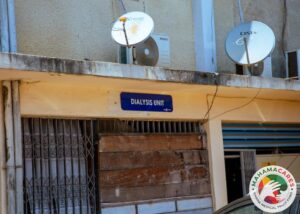
At KATH and the Kumasi South Regional Hospital in the Ashanti Region, the team noted serious gaps including non-functional CT and MRI machines, limited Intensive Care Unit (ICU) capacity, and pressing challenge of retaining trained specialists.
These deficiencies have significantly hampered the hospitals’ ability to deliver life-saving care, especially for NCD patients.
Hospital administrators expressed concern over the lack of basic equipment and specialist staff, and pledged to provide the Fund with detailed data to support future interventions.
At the Greater Accra Regional Hospital, also knowns as Ridge Hospital, the leadership, led by Dr. Leslie Issa Adam-Zakariah, outlined a grim picture of human resource gaps and critical shortages in diagnostic tools.
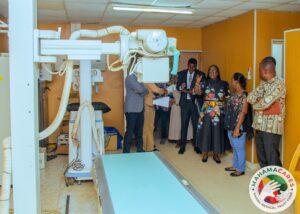
The absence of equipment such as fluoroscopy machines, CT scanners, MRI units, and mammography tools has forced the hospital to refer patients to external private facilities for essential diagnostic procedures.
This not only delays timely diagnosis but also disrupts continuity of care and imposes additional financial and emotional burdens on patients and their families.
Urgent Call for Investment
The needs assessment tour is part of a broader initiative by the Ghana Medical Trust Fund to evaluate the state of public healthcare infrastructure and identify priority areas for intervention.
“The goal is not just to identify problems, but to gather accurate data that will inform policy decisions and strategic resource allocation. What we are supposed to be doing cannot be done by sitting at the Secretariat. It is important to go around, see what is happening on the ground, identify the gaps, and provide the needed support,” Madam Darko-Opoku noted.
The team is expected to visit all ten regional hospitals and the country’s five teaching hospitals before extending the assessment to district-level facilities.
The findings from the tour have sparked renewed calls for immediate investment in healthcare infrastructure, including diagnostic equipment, staff training, and specialist retention strategies.
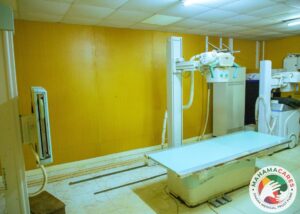
Health stakeholders and civil society groups have also thrown their weight behind the MahamaCares initiative, describing it as a crucial step toward transforming Ghana’s public healthcare delivery system to save lives.
Established to support public healthcare through strategic investments, the Ghana Medical Trust Fund aims to fight against non-communicable diseases, address systemic healthcare challenges by focusing on infrastructure, medical equipment, specialist training, research, and partnerships with both local and international health institutions.


